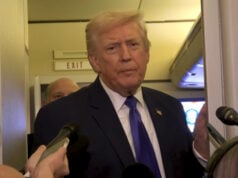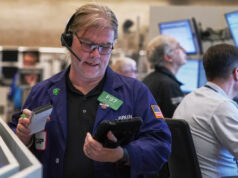
Sportsbooks have always been magnets for dreamers. Some bets are smart, some are silly, and a bold few become legend, because they actually cash. From 5,000-to-1 fairytales to “what color is the Gatorade?” props, here are the wildest wagers books have taken, and, sometimes painfully, paid.
From the Sunshine State to the long-shot hall of fame
If you’re in Florida, your legal online betting lane today runs through the Seminole Tribe’s Hard Rock Bet. The state’s exclusive operator, after a string of court wins, kept the 2021 compact intact and allowed mobile wagering to resume in November 2023. Circuit revived the compact in June 2023, and the U.S. Supreme Court declined to intervene in June 2024, effectively keeping the door open for online bets routed through tribal servers.
But yes, there are sports betting sites in Florida that you can go to and still bet legally–they’re offshore places. Still, according to sports expert Russell Simmons, they’re safe, the market is huge, and bonuses are bigger than you’re used to.
Leicester City’s title that broke the pricing models
When Leicester City won the 2015–16 Premier League, some bookmakers were still holding preseason tickets at 5,000-to-1. Industry estimates pegged total losses in the tens of millions. William Hill alone cited roughly $3.2 million in payouts, while reports tallied combined damages of around $11.4 million to big firms. Individual bettors hit life-changing scores, including a £50 bet at 5,000-to-1 that netted £250,000. It remains the modern benchmark for “they really posted that price?”
40/1 lightning on the first play of the Super Bowl
Prop-bet folklore got a fresh chapter at Super Bowl XLVIII. Books were dealing 40-to-1 or so on “first score: safety.” Twelve seconds after kickoff–the fastest score in Super Bowl history–Seattle’s snap sailed past Peyton Manning and into the end zone. Anyone holding that novelty ticket saw a $100 stake turn into $4,000… before most folks had found the guacamole.
Buster Douglas knocks out the “invincible” Mike Tyson
On Feb. 11, 1990, James “Buster” Douglas stopped Mike Tyson in Tokyo as a 42-to-1 underdog, detonating one of the most shocking tickets ever printed. The price is now Vegas lore. Even decades later, veteran bookmakers still tell the story of stunned trading rooms and bettors who dared to try it.
$85,000 becomes $1.19 million
When Tiger Woods won the 2019 Masters, a Wisconsin bettor named James Adducci turned an $85,000 bet at 14-to-1 into $1.19 million, and promptly rolled more money into a Grand Slam future that would have paid $10 million if Tiger swept the majors. The original win was so large that it made national news and had bookmakers openly sweating on Sunday at Augusta.
The Gatorade bath
One of the silliest (and most beloved) novelty props each February is the Gatorade color dumped on the winning coach. Books track the history, post markets, and fans bet everything from yellow/green to blue to “no bath.” In recent Super Bowls, markets even shaded toward yellow/green–at times the favorite–and bettors sweat a sideline cooler like it’s fourth-and-goal. It’s goofy, it’s harmless, and yes, it pays out like a regular prop.
500-to-1 Golden Knights
When the Vegas Golden Knights began their inaugural season, shops like Westgate reportedly hung as long as 500-to-1 to win the Stanley Cup and 250-to-1 to win the West. Then Vegas went on a heater to the Final, and suddenly sportsbooks were calculating how many jaw-dropping futures they’d written to locals who wanted a souvenir slip. Some bettors had $60 at 500-to-1 (a would-be $30,000 payout). It didn’t cash that year, but it came terrifyingly close for the books.
The 2011 Cardinals believer
Down five games with 15 to go, one MGM customer grabbed the St. Louis Cardinals to win the World Series at 999-to-1 (and another ticket at 500-to-1 to take the NL). The Cards ripped off a miracle run, and the bettor reportedly pocketed $375,000 on the pair. It’s the platonic ideal of the long-shot future: ugly when you buy it, beautiful if the math and the momentum meet.
Why do books book these bets anyway?
If some of these numbers look outrageous, that’s partly the point. Long-shots and novelty props are customer catnip. They keep casual fans engaged and generate buzz. Books also price the risk (and limit stakes) so the exposure stays manageable. Leicester was painful, but firms later noted they still held up fine overall, thanks to handling across other markets and seasons.
What makes a “crazy” bet smart (or just… crazy)
A few patterns separate the legendary scores from the lottery tickets:
- True mispricing vs. true miracle. Leicester’s 5,000-to-1 still sparks debate about whether models undervalued the Foxes, or whether we simply witnessed sports chaos. Either way, it proves books can be wrong at times.
- Market maturation. Gatorade-color and “first score: safety” props began as novelties; after big hits, lines tighten as traders and quants adapt (and limits often stay modest).
- Narratives vs. numbers. Tiger’s Augusta run had a narrative tailwind and a credible price at 14-to-1; plenty of “feel-good” futures don’t. The Cardinals’ 999-to-1 is the cautionary exception: variance and a hot closer can blow up even sound pricing in baseball.
Disclaimer
The information contained in South Florida Reporter is for general information purposes only.
The South Florida Reporter assumes no responsibility for errors or omissions in the contents of the Service.
In no event shall the South Florida Reporter be liable for any special, direct, indirect, consequential, or incidental damages or any damages whatsoever, whether in an action of contract, negligence or other tort, arising out of or in connection with the use of the Service or the contents of the Service.
The Company reserves the right to make additions, deletions, or modifications to the contents of the Service at any time without prior notice.
The Company does not warrant that the Service is free of viruses or other harmful components












